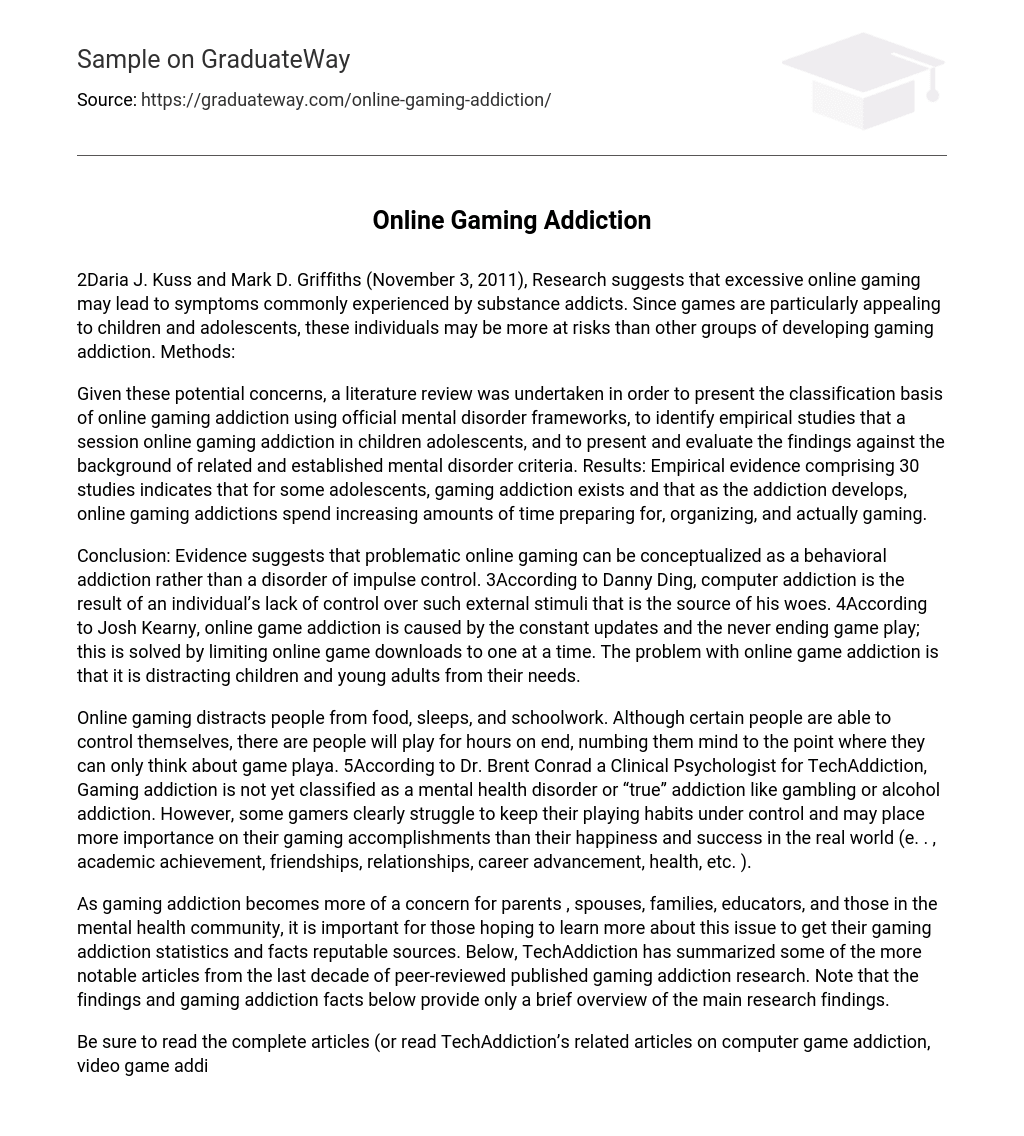Studies indicate that excessive online gaming can result in symptoms typically observed in individuals addicted to substances. Due to their strong appeal to children and adolescents, these particular age groups may be more susceptible to developing an addiction to gaming.
Methods
To address these concerns, a literature review was conducted to outline the classification basis of online gaming addiction within official frameworks for mental disorders. The review also aimed to identify empirical studies on the addiction in children and adolescents who engage in online gaming. Finally, the findings were presented and evaluated in relation to established mental disorder criteria.
Symptoms of Addiction
Below are some symptoms that indicate a Gaming Addiction. Many of these symptoms resemble those seen in other types of addictions:
- Spending time playing the game to the point where they interfere with friends, marriage and family relationships, and work.
- Findings a spouse or family angry with them and arguing with them about their gaming.
- Hiding how much time or how much money they are spending on the games. Findings ways to access or game when away from home or in other activities.
- Reminiscing about gaming when they are not playing, or planning strategies, or talking primarily about the game.
- Experience intense excitement and adrenalin rushes at different points in the game, and needing more intensity of some kind on that same rush.
- Loss of sleep due to gaming time.
- Choosing gaming over sex, intimacy, social activities.
- Feelings of guilt or shame about one’s involvement in gaming.
Assumptions and Hypothesis
In Japan, the issue of online game addiction is becoming more serious, especially among young individuals. While people getting obsessed with playing games has always been a problem, it has recently worsened. For instance, there is a story about a young boy who received money as a gift on New Year’s Day and managed to spend all of it within just 10 days because he was addicted to online gaming. Despite suffering financial consequences, the child found joy in receiving compliments and admiration from other players online, which further fueled his desire to invest more time and money into gaming. Sadly, his excessive gaming went unnoticed by his parents until they received a demand notice for non-payment of 50,000 yen. By that time, the child had already spent well over one million yen on online games.
Describing his chronic lateness to school and significant weight loss, it is evident that his struggles didn’t stop there. Although he received counseling during his junior year of high school, he was able to temporarily distance himself from gaming. However, upon entering a technical college, he became addicted once more, this time to a different online game. Presently, he finds himself predominantly gaming on his phone and often sacrifices sleep as a result.
Despite being aware of the challenges he faces, the person persists in playing games due to a belief that the real world offers no hope. However, within the virtual realm of gaming, he can make strides and find satisfaction that eludes him in reality. It is clear that individuals such as him need support and motivation. The research emphasizes the seriousness of gaming addiction, which, if left unattended, can result in devastating outcomes like broken marriages, suicide, joblessness, and financial ruin.





